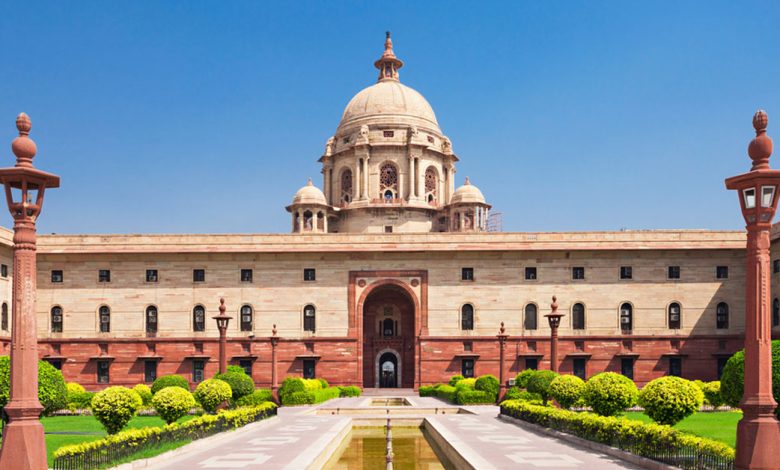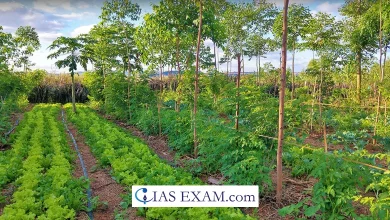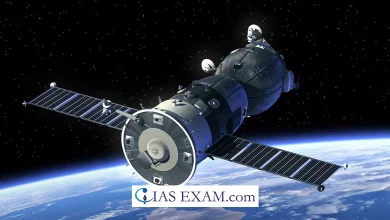
Context- In its consideration of the Delhi government’s argument against the Lieutenant-Governor’s (LG) appointment of Aldermen, the Supreme Court noted that the LG’s authority to nominate members of the Municipal Corporation of Delhi (MCD) could destabilize the Elected Civic Body.
Key Highlights
- The word, alderman, comes from the combination of “old” and “man,” which means an older man or someone with more experience.
- The term was originally used to describe elders of a clan or tribe, but it soon became used to describe viceroys of kings of any age. Before long, it meant a more unambiguous title – “chief magistrate of a county,” having both common and military obligations.
- The term came to be used for officers of municipal bodies in the 12th century CE as guilds became more and more associated with municipal governments. This is the sense wherein it is utilized till date.
Delhi’s case:
- The administrator (the LG) may appoint ten individuals over the age of 25 to the corporation in accordance with the Delhi Municipal Corporation Act of 1957.
- It is anticipated that these individuals will have particular municipal administration expertise or knowledge.
- They are intended to help the house in taking choices of public significance.
What are the Concerns Related to the Appointment of Aldermen?
- The primary concern is connected with the appropriateness of the designated people. Two of the ten candidates were found to be technically unqualified for the position after the recommendations were sent to LG. This brings up issues about the exhaustiveness and straightforwardness of the selection interaction, as people who are not qualified or reasonable for the job ought not be designated.
- The second issue is the perception that the LG’s selection of aldermen is an effort to maintain control and influence over the Municipal Corporation of Delhi (MCD) despite their defeat in the election. This raises worries about the majority rule standards of portrayal and the reasonableness of force elements inside the MCD.
What is the observation of the SC?
- The Additional Solicitor General, addressing LG contended that there is a qualification between the powers of the L-G under Article 239AA of the Constitution and their job as a Chairman of the public capital. He asserted that, in accordance with the law, the L-G participates actively in the selection of aldermen.
- The SC, on the other hand, stated that because the L-G would have voting authority, granting them this authority could potentially destabilize the democratically elected MCD.
- The SC has explained that the L-G doesn’t have broad chief abilities in the public capital, which works under a novel “Hilter kilter Government Model” of administration.
- The expression “Uneven Government Model” alludes to an arrangement of administration where various locales or parts inside a league have shifting levels of independence and abilities.
- According to Article 239AA(3)(a), the court stated that the L-G can exercise executive power at their discretion only in three specific areas.
- Public request
- Police
- Land in Delhi.
- The court additionally expressed that assuming the L-G contradicts the Chamber of Pastors of the Public authority of the Public Capital Domain of Delhi, they ought to follow the strategy illustrated in the Transaction of Business (ToB) Rules 1961.
- The Constitution’s Article 77(3) provides a framework for the division of work and responsibilities among the various government departments and ministries, which is the source of the ToB regulations. They describe the steps taken to create, approve, and carry out government decisions, policies, and actions.
What is the conflict between the Delhi Government and the Center?
- Because of the concurrence of Article 239 and 239AA, there is a jurisdictional struggle between the public authority of NCT and the Association Government and its delegate, the LG.
- The Union government asserts that because New Delhi is a Union Territory, Article 239 grants the LG authority to act independently of its Council of Ministers.
- However, Delhi’s state government argued that Delhi is entitled to the special status of having its own legislatively elected government under Article 239AA of the Constitution.
- This causes conflict over the LG’s administrative authority and that of the state government of the NCT of Delhi.
Arguments from the Centre and State Governments:
-
- The focal government accepts that as Delhi is the public capital and addresses the country, it ought to have authority over managerial administrations, including arrangements and moves.
- However, the Delhi government argues that elected representatives ought to be able to make decisions about transfers and postings in accordance with Federalism.
- Legal Problems:
-
- When a two-judge bench decided in February 2019 how powers should be divided between the Delhi government and the center, the first issue came up.
- They left the question of administrative service control to be decided by a larger Bench.
- In May 2022, a three-judge Seat had alluded this case to a bigger Seat on the Central government’s request.
- The three-judge Bench had concluded that the subject of command over managerial administrations required “further assessment”.
- The Government of National Capital Territory of Delhi (Amendment) Act 2021, which was approved by Parliament, is the second issue.
- According to the Act, the Lieutenant Governor (L-G) will be referred to as the “government” in any Delhi Legislative Assembly legislation.





.png)



